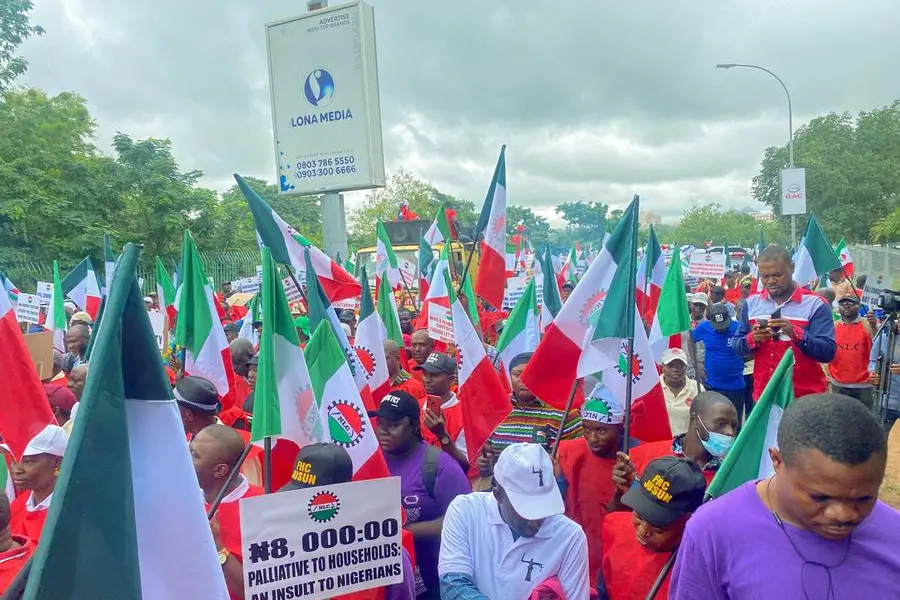PHOTO
An indefinite nationwide strike by Nigeria's two biggest unions due to start on Tuesday to protest against the rising cost of living has been suspended following last-minute talks with the government.
The calls for the strike - which a third union representing oil workers had pledged to join - were triggered by the removal of a fuel subsidy by new President Bola Tinubu that has sent fuel prices soaring.
The decision by the country’s two largest unions - the Nigeria Labour Congress (NLC) and the Trade Union Congress of Nigeria (TUC) - came after marathon talks held on Sunday and Monday with government officials that ran late into the night.
The two sides made some concessions to prevent a strike that would have disrupted business in Africa's biggest economy and No. 1 oil producer.
“The NLC and TUC accept to suspend for 30 days the planned Indefinite Nationwide strike scheduled to begin, Tuesday, the 3rd of October, 2023,” leaders of the two unions and government representatives said in a joint statement.
Although the subsidy would remain in place, the two sides reached consensus on some measures, including the government agreeing to suspend collection of Value Added Tax (VAT) on diesel for six months beginning from October, 2023.
The two sides also agreed that a minimum wage committee would be set up within one month from now, and the government agreed to provide temporary wage raises pending the outcome of the committee’s deliberations.
The government also agreed to a wide range of demands, including providing incentives for mass transport buses.
The Nigeria Union of Petroleum and Natural Gas Workers had said last week that it would join the strike in solidarity with the two other unions, which could have disrupted production of oil. It was not immediately clear if the union would also hold off the strike for now.
Tinubu's decision to abolish petrol subsidies followed his inauguration in late May. Since then Africa's most populous country's has seen inflation rise to an 18-year high.
Tinubu removed the fuel subsidy saying the government could not afford it any longer, and that the money would be better spent on building roads, schools and hospitals.
(Editing by Seban Scaria seban.scaria@lseg.com)





















